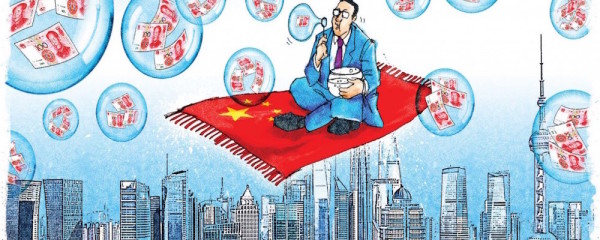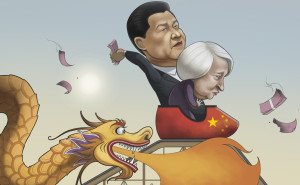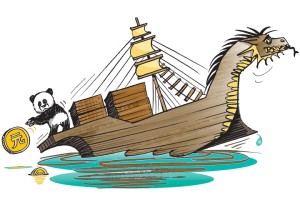20
Jan 2016
YUAN DEVALUATION
It’s been quite a time, we haven’t talked about Chinese economy again. This year, we keep hearing from the yuan devaluation, stock devaluation, etc. Regarding this situation, a question rose, why the yuan devaluation does not occur to decrease sharply?
The Shocking New Year Start
Immersing stocks and currency have made a dramatic start to the new year in China. The closely watched Shanghai Composite Index fell 3.6 per cent on Friday, down more than 20 per cent from its recent high, thus entering bear market territory. Concerns over the Chinese economy and a free fall in oil prices have helped trigger a global stock market sell-off. The major US stock indexes fell more than 2 per cent after the Hang Seng Index ended the week with a 4.6 per cent loss.
Currency speculators have started to pay more attention to the yuan as China’s capital outflow has accelerated, forcing the mainland’s central bank to take drastic moves to squeeze the speculators by buying yuan and selling the US dollar heavily in the offshore markets last week. It is caused caused the borrowing costs for offshore yuan in Hong Kong to raise by 200% at one point. While the yuan has stabilised following the heavy intervention, expectations are strong that it will continue to weaken amid a slowing economy and massive capital outflows.
Premier Li said China had no intention to use a cheaper yuan to boost exports and had the tools to keep the currency stable, but they will find it tough to convince investors as the economic data for 2015, to be released later this week, is expected to raise a fresh wave of concerns about the health of the Chinese economy.
The Speculator
On stock markets, so far the authorities have failed, exemplified by the ill-considered introduction of the circuit breaker mechanism, only to have it suspended four days later. The rules were meant to act as a kind of emergency brake to combat the wild market swings but had the opposite effect. The authorities have been micro-managing Chinese stock markets. They also have been the key contributor to the swings and prevented the markets from becoming more mature and professional.
How about the currency? China’s battle with speculators is expected to be continued this year. Even though Chinese leaders including Premier Li have repeatedly vowed to keep the yuan stable, speculators are unlikely to be scared away amid a slowing economy and expanding capital outflow. The speculators are mostly domestic.
It is interesting to notice that while the mainland media like to play up the conspiracy theory that the attacks on the yuan were orchestrated by a group of highly sophisticated international speculators aspiring to be the next George Soros, who famously broke the Bank of England, the authorities have conclusive evidence that the speculators are mostly domestic, from Guangdong, Shanghai and Zhejiang as well as Hong Kong and Taiwan. They have mainly been using the offshore yuan markets in Hong Kong and hence the heavy intervention last week.
The Answer to The Why
In conclusion, this continuous yuan devaluation would help China’s exports and prevent a sharp fall in asset prices at home, but the mainland authorities have good reasons not to tinker with the currency too much, not least because this would help trigger competitive devaluations by other countries which would in turn wipe out the benefits from such an action.
More interestingly, Beijing assured Washington that it would keep the yuan stable after the US approved changes to International Monetary Fund governance to give China a bigger voice and agreed to add the yuan to its reserve currency basket.
“The stock market is a device for transferring money from the impatient to the patient – Warren Buffett”
Source: SCMP


































